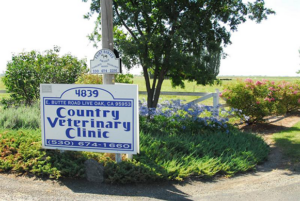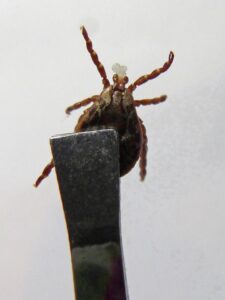It may surprise you to know that, unlike humans, animals who suffer from physical disabilities rarely know that they are any different from their able-bodied friends. Whether your pet was born with a disability or has become disabled as a result of an accident or injury, you will find that animals are extremely resilient and resourceful creatures, and will almost always be able to adapt to their circumstances.
Here are some of our top tips for caring for disabled canine companions and feline friends.
Pet Care For Deaf Animals
All pets require some training to get them to follow your instructions. However, if you choose to adopt a deaf dog or cat then you will need to adapt your training methods so that they are visual rather than verbal.
Getting Their Attention
To get your pet’s attention, you will need to make eye contact with them, or touch them gently to let you know that you are addressing them. When it is dark and they may not be able to see you clearly, you can use a small flashlight to alert them.
Keeping Your Deaf Dog Safe
It is important to remember that deaf animals cannot hear traffic noise or any other warning signs. If you have a deaf dog and want to let him off the lead, you should only ever do this in completely secure and enclosed spaces, where you can keep an eye on him at all times.
You may also want to consider purchasing a collar that identifies your dog as deaf. That way if he was to run off, whoever finds him would be able to understand why he may not respond to sound.
Keeping Your Deaf Cat Safe
Unfortunately, there is no way of keeping a deaf cat safe if they are outside. They will be unable to hear the sound of potential predatory dogs or traffic approaching. Therefore, it is highly recommended that deaf cats are kept indoors and offered stimulation in the form of attention and game-playing.
Pet Care For Blind Animals
A blind animal will always require a little more guidance. You may be surprised to know that dogs are more reliant on scent than sight, and it may not be immediately obvious if your canine has a visual impairment. While cats do rely primarily on their vision, there are steps that you can take to help your pet to cope well with their disability.
Adapt Your Living Space
Be prepared to re-arrange your living space so that floors and passageways are kept clear. Once an accessible layout has been created, walk your pet through it multiple times to help them get used to it. Try and keep it the same so as not to confuse your pet, but if you must change the furniture around you will need to reintroduce your pet to the new layout again,
Utilize Other Senses
When one sense is compromised, humans will automatically rely more heavily on others to compensate. Animals are no different. Your pet will find comfort in the sound of your voice and can use it to pinpoint where you are in the room or house. Games using toys with hidden, delicious-smelling treats will keep your pet’s mind active and alert.
Create A Safe Yard
Make sure that your yard has been properly secured and doggy-proofed, and is free from hazards. That way your visually-impaired dog can still get the enjoyment from an outside space.
Pet Care For Animals With Mobility Problems
Paralysis or part-paralysis can be temporary as a result of injury, or a permanent condition. However, this doesn’t mean that your pet can’t get themselves moving.
Pet Mobility Aids
There is a selection of specially-designed pet mobility aids on the market, including harnesses, slings and carts. With practise, your animal will be able to regain some independence and get the most from his life.
Alternative Therapies
Some alternative therapies have proved to be successful in improving the condition and health of disabled pets. Your veterinarian will be able to recommend a rehabilitation therapist who may use a combination of massage, acupuncture and chiropractic care to benefit the mobility of your pet.
A disability doesn’t have to hold back a human or an animal. With the right support, nutrition and veterinary care, there is no reason why your beloved pet shouldn’t enjoy a long, happy and fulfilling life.



